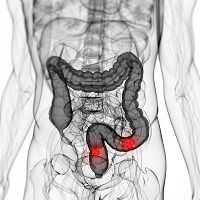Diverticulosis and Diverticulitis: When is Surgery Prudent?
Americans' low-fiber diets that tend to be rich in red meats put them at risk for diverticulosis, and by age 60, roughly half of Americans have or have had diverticulosis. It's not clear how many patients with diverticulosis go on to develop diverticulitis, but once diverticulitis develops, 10-25% of patients need surgery, often urgently.

Americans’ low-fiber diets that tend to be rich in red meats put them at risk for diverticulosis, and by age 60, roughly half of Americans have or have had diverticulosis. It’s not clear how many patients with diverticulosis go on to develop diverticulitis, but once diverticulitis develops, 10-25% of patients need surgery, often urgently. In the United States, this condition’s burden is quite high but no evidence-based guidelines have been developed and little is known about long-term management and outcomes. Annals of Surgery has published a large study that indicates that in patients age 50 or older, surgeons should consider resection sooner rather than later.
An international team of investigators set out to determine diverticulitis’s long-term outcomes with respect to current practice patterns. They reviewed the California Office of Statewide Health Planning and Development database from 1995 to 2009. They identified patients admitted for diverticulitis as an emergency (N=210,268) and looked for recurrence, treatment approaches, and mortality after recurrence.
Clinicians managed 85% of diverticulitis patients admitted emergently medically at their index admission. Most patients—84%—did not experience a recurrence. A total of 27,450 (16%) experienced a diverticulitis recurrence.
Risk for mortality was more than 5 times more likely in patients older than age 50 year. Patients with histories of tobacco use or who presently initially with complications or an obstruction were also at increased risk of death. Comorbid abscess, peritonitis, sepsis, and fistula doubled to tripled risk.
Patients who delayed but eventually underwent elective colectomy after the first episode of emergent diverticulitis were far less likely to die than those who risked another recurrence. Five percent of patients who had a second recurrence and had emergent resection died.
The investigators urge surgeons to strongly consider resection for diverticulitis patients older than 50 years or those who present with complicated clinical pictures. They acknowledge that this approach differs from the traditional recommendation of surgery based on number of episodes alone, but believe the strength of their data supports individualizing treatment plans based on a patient’s unique characteristics.